By Geoff Hunt, Audio and Visual Curator
Texas has changed quite a bit over the years, as is readily seen in our vast photograph and postcard collections. To help bring some of those changes to life, we’ve created a “Texas over Time” blog series that will illustrate the construction and renovations of buildings, street scenes, and more. Our collections are especially strong on Waco and Baylor images, but look for some views beyond the Heart of Texas, too.
Waco’s Provident Building-Once the Biggest Office Building in Central Texas and Beyond
The Provident Bank Building that once stood at the corner of Fourth and Franklin Avenue in Waco, Texas, was the largest building in Waco and believed to be the largest of its kind beyond central Texas. It cost $438,000 to build when completed in 1890, and was once headquarters to Provident National Bank. The large stone building after completion was “regarded as the biggest and finest office building in the Southwest.” During its busiest years, it served as Waco’s center of insurance, banking, legal, and government operations. When the city and county governments needed a place to hold operations when their halls and courthouses were being built, the Provident Building accommodated their needs. It was also where famed publisher and freedom of the press advocate William Cowper Brann kept his office for many years editing his famous Iconoclast newspaper.
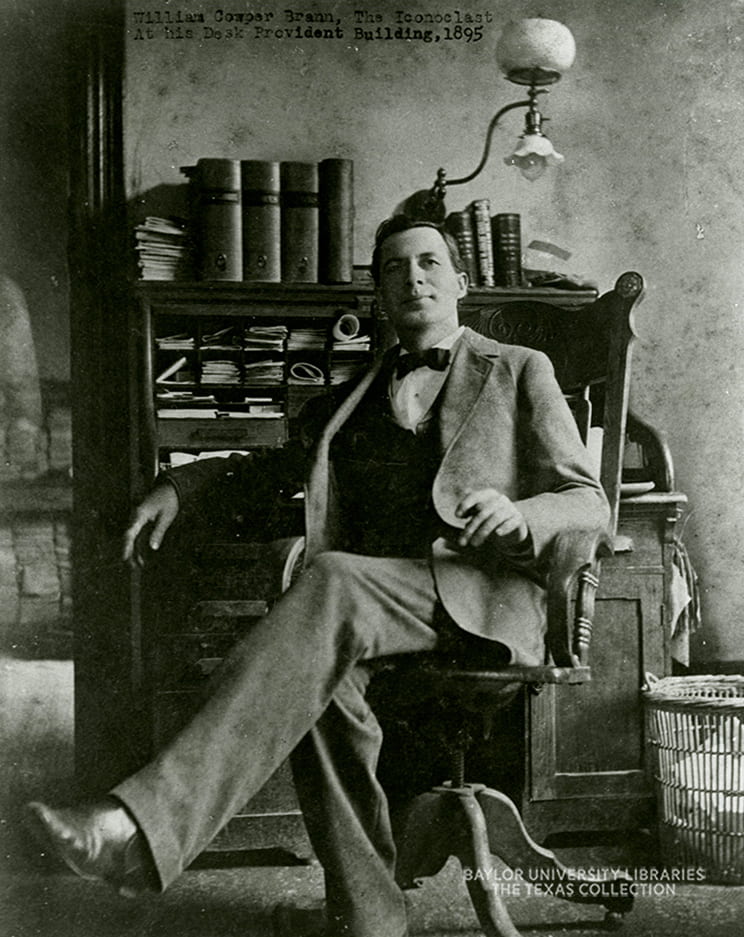
On May 11, 1953, the old Provident Building also withstood Waco’s biggest natural disaster in its recorded history. This catastrophic F5 tornado hit the city’s central business district killing a total of 114 people and destroying 346 buildings. Across the street from the Provident, on Franklin Avenue, the multi-story Padgitt Building and its neighboring structures crumbled when hit by the winds of this storm. On the next street over, Austin Avenue, the five-story R.T. Dennis Furniture Company building was demolished as well with a loss of many lives. However, the old Provident Building “was damaged, but not structurally in the 1953 tornado and stood like the massive pile of stone it is as rows of other buildings across the street went down…,” according to the Waco News-Tribune of July 1, 1954.
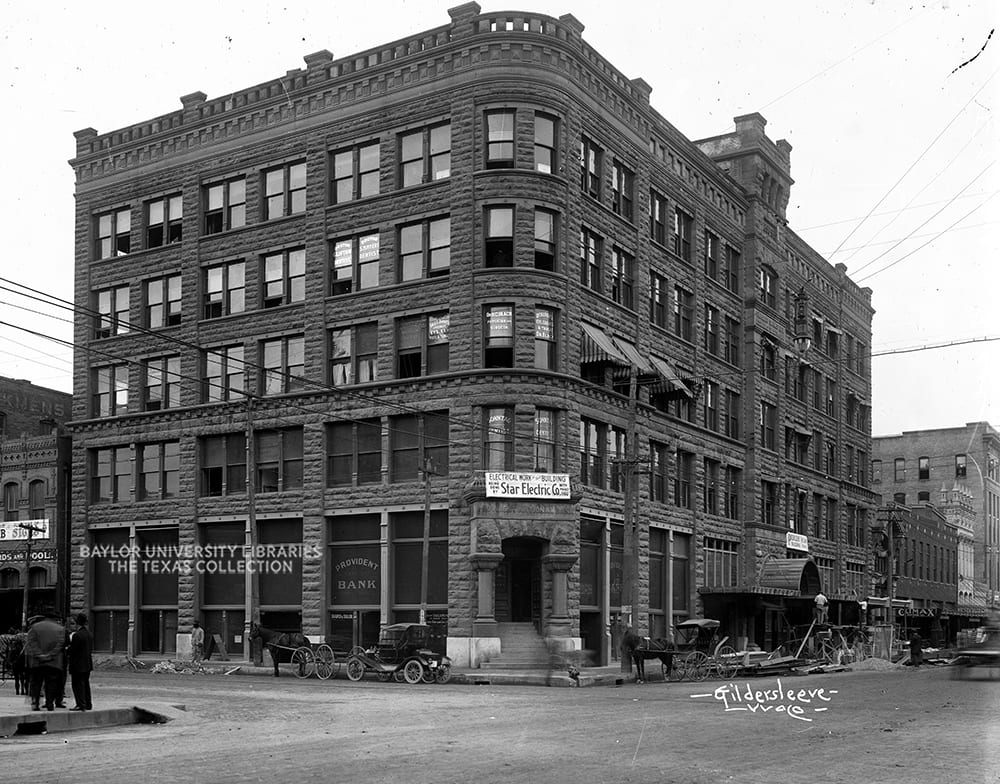
Unfortunately, the solid structure could not stand the test of time in both form and function for the citizens of Waco in the late 1950s. Consequently, the Provident Building was short-lived for such a significant structure. In the Waco News-Tribune of November 26, 1958, a story about the building states: “The massive, ugly five-story Provident Building at Fourth and Franklin will be demolished.” A piece in the April 7, 1959, Waco Citizen, announced this planned demolition with the papers editor, Bill Foster, Sr., giving reasons of “high insurance costs and low rent income.” As a result, the high costs of operation and maintenance on the building led to it being razed. Many other historic structures in Waco met a similar fate over the years in addition to those lost in the 1953 tornado and later during Urban Renewal of the 1960s and 1970s.
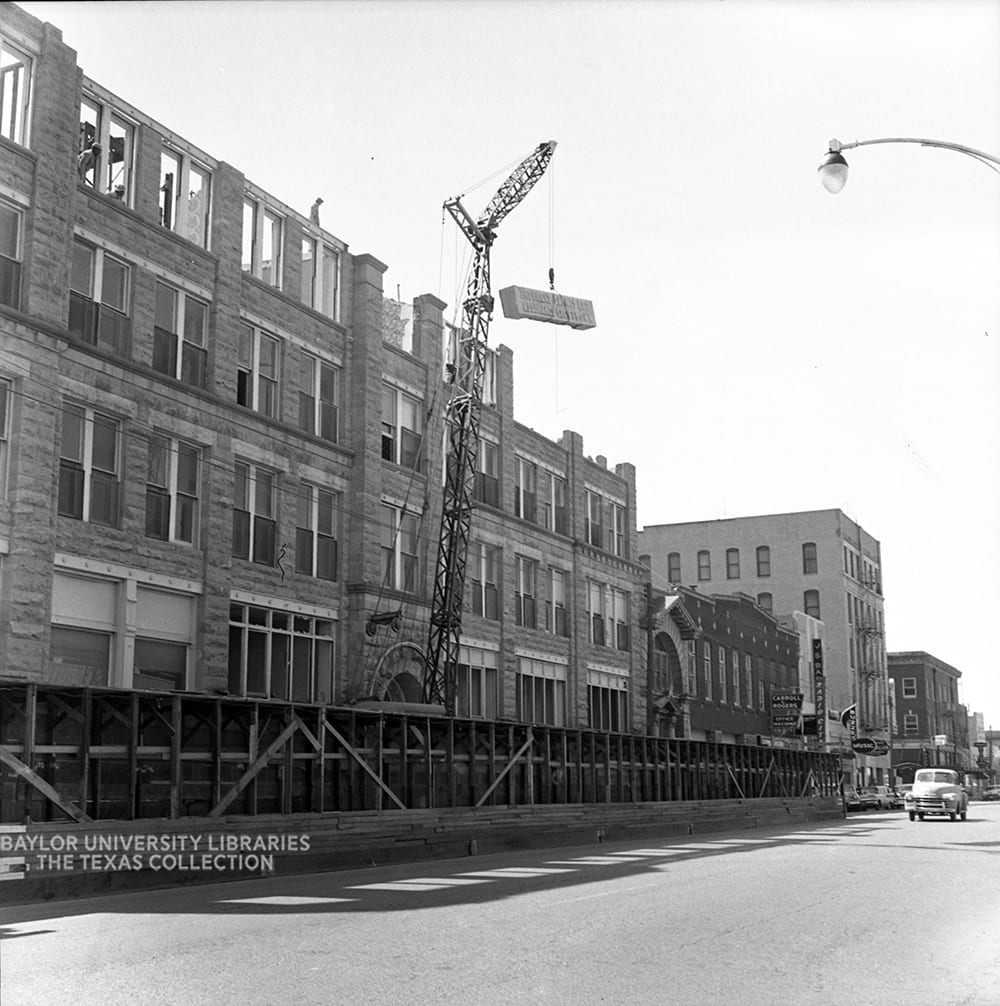
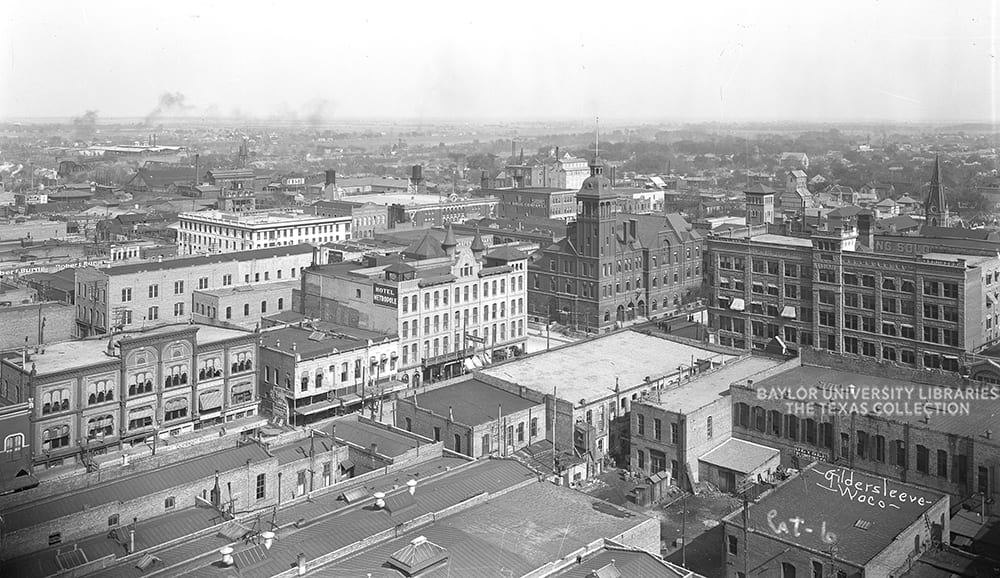
An interesting fact about the Provident Building is that its contractor, John Tennant, used surplus stone from it in constructing his home–what would become the Cottonland Castle. Although Tennant didn’t finish building the Castle, he is responsible for the sturdy engineering of its basement and foundation. Tennant’s vision of building the Cottonland Castle for himself seems to be inspired by the Provident Building. The Castle was eventually completed by famous Waco architect, Roy Ellsworth Lane, who finished the “frame up” job in 1913. Although short-lived for such a significant structure, the Provident Building on Waco’s Franklin Avenue stood for many years and was a landmark for locals and visitors for many decades.

CHECK OUT THIS FLICKR SET FOR MORE PICTURES OF WACO’S Provident Building and Fourth and Franklin Avenue
Works cited:
“Sanford Reviews Phases of Waco’s Progress for JCC.” The Waco News-Tribune. September 6, 1940.
“Dallas Interests Buy Provident Building.” The Waco News-Tribune. July 1, 1954.
“Provident Building Will be Torn Down.” The Waco News-Tribune. November 26, 1958.
“Provident Building Disappears from the Street Scene.” Waco News-Citizen. April 7, 1959.
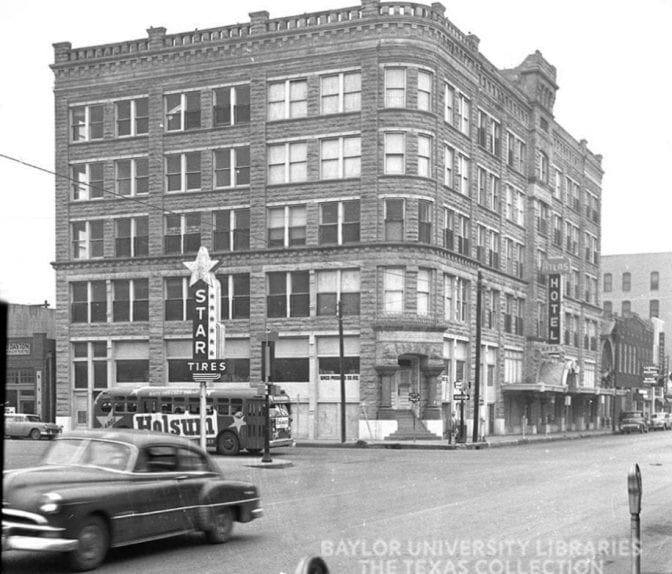

No Comments